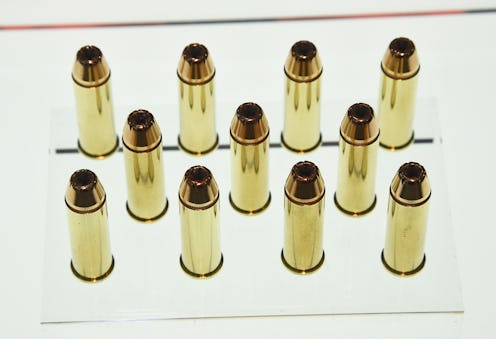Last week, Democrats were widely lauded for holding a sit-in on the House floor to advocate for stronger gun control policies. More specifically, they were protesting to force a vote on a "no fly, no buy" bill that would prevent "potential terrorists" on the TSA's no-fly list from purchasing guns. But while many liberals congratulated the politicians who participated and drew parallels between this sit-in and other movements of resistance, I believe this gun control bill would preserve a racist and Islamophobic status quo.
Gun violence is pervasive, but fighting gun violence with racism is not an answer. Surveillance pertaining to terrorism generally results in discrimination disproportionately targeting Muslims, Arabs, and other black and brown immigrants. We definitely need policies to decrease tragically high rates of gun violence, but federal terror watch-lists like the no-fly list often arbitrary criminalize marginalized people and legally permit racial profiling.
Moreover, the shooter who killed 49 people at the LGBTQ Pulse nightclub in Orlando was actually removed from a terror watch-list after the FBI closed its investigations of him, so this bill would not have stopped him from buying a gun, either.
Islamophobia and racism aren't the only problematic aspects of proposed gun control legislation. A great deal of the rhetoric used in discussions of gun control is extremely ableist, with politicians trying to keep guns out of the hands of the "dangerously mentally ill." When we use language like this to talk about mass shootings and gun violence, we further stigmatize mental illness, and we fail to actually combat the culture of mass violence that we have created.
Short of getting rid of guns altogether, there are ways to tackle this problem that are not racist, Islamophobic, or ableist. For example, the Supreme Court recently upheld a federal law that prohibits people with misdemeanor domestic violence convictions from owning guns. This is obviously not enough to stop all gun violence, but at least it advocates for the survivors — rather than the perpetrators — of domestic violence.
What we absolutely cannot condone is even more discriminatory policies targeting marginalized populations. What does it mean to try to disarm the marginalized before disarming the oppressor? What does it mean for us to talk about gun violence in the context of mental health, rather than in the context of bigotry and hatred? So many proposed gun control policies single out and scapegoat historically marginalized populations, which only serves to ignore all the mass shootings carried out by white men. We definitely need to combat gun violence, but not like this.
